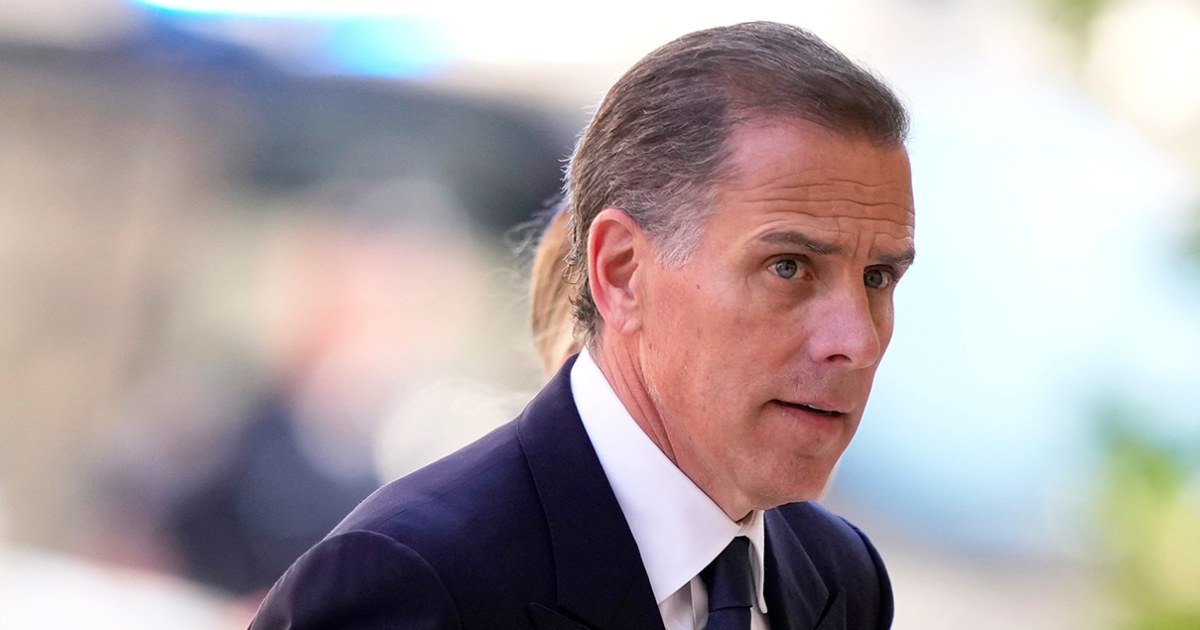WILMINGTON, Del. — In a cadence that at times evoked a fish gasping for air, a lead prosecutor for the special counsel, Derek Hines, worked Tuesday to hammer into place the government’s narrative that Hunter Biden was a high-functioning drug addict who lied to friends and family and ultimately broke the law when he checked a box on a government background check form that he was not a drug user during the purchase of a handgun in 2018.
Hines leaned heavily on Hunter’s own words to characterize his habits and addiction leading up to and after the purchase, later bringing in the prosecution’s first witness, an FBI agent, who explained how the government authenticated key pieces of evidence, including files extracted from a laptop Biden abandoned at a Wilmington computer repair shop.
Several jurors took notes as the prosecution played excerpts from Biden’s 2021 memoir, “Beautiful Things,” including a retelling of his first attempt to buy crack cocaine from a homeless woman in Franklin Park in Washington, D.C.
Yet that telling came under repeated stress.
Tensions also rose early in the day outside of the proceedings as Hunter’s wife, Melissa Cohen-Biden, approached former Trump White House aide Garett Ziegler in the hallway outside the courtroom. Gesturing towards him, Cohen-Biden pointed her finger and said, “You have no right to be here, you Nazi piece of s—.”
Ziegler has disseminated data from a laptop belonging to Hunter Biden that documented, in vivid detail, scenes from the throes of his addiction — some of which have now materialized as evidence against him.
Here’s what you missed on Day 2 of the trial:
Dueling narratives
Arguing that the prosecution’s heavy-handed timeline was focused everywhere but the critical period — barely more than one week — during which Biden owned the gun, and whether he knowingly lied when he attested to not using drugs, his attorney, Abbe Lowell, replayed key events from Hines’ account offering a counter-narrative that delicately unpicked the government’s stitching and rewove it into a story of a man in recovery who was prodded into the rushed firearm purchase at the center of the historic case against him.
Lowell spoke to the jurors directly as he walked them through these moments: Bored as he awaited the processing of a new cellphone, Hunter Biden ambled into a store with “an interesting name” where a salesman and self-described “whale hunter” approached, and ultimately “led” the president’s son to buy a Colt Cobra revolver, as well as ammo, a speed loader (to alleviate the “downside” of having to load every cartridge individually) and even a BB gun.
Lowell indicated that Biden was rushed to finalize














